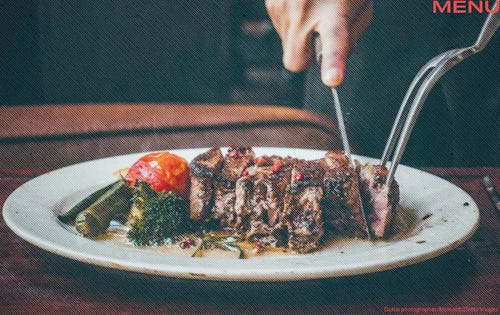
The ketogenic, a.k.a. keto, diet has always seemed a little sus to me. From my veganish perspective, eating keto seems like a ploy to make liking-bacon-but-looking-fit into a whole lifestyle. It turns out that I was right to wonder about whether keto diets are actually healthy and sustainable or not. According to a panel of nutritionists, the keto diet is one of the worst.
The ketogenic diet is a low-carb, high-fat diet that was originally designed to treat epilepsy. It became popular after an Italian doctor, Gianfranco Cappello, did a study in 2012 that suggested that the diet could be used for weight loss. See, when you don’t give your body any carbs, it burns fat (instead of sugar) as fuel — a process called ketosis. Ketosis can happen naturally for short periods of time — it’s one of the ways your body creates energy out of food. But the idea of the keto diet is to keep your body in a state of ketosis in order to maximize the amount of fat your body burns.
People all over the world got on board with keto, because while you basically can’t eat bread on the diet, it includes a lot of fatty foods that people love, like burgers and eggs. Researchers have been studying the effects of the diet, and some studies do suggest that it can help people lose weight in a short period of time. And you know people will try anything for a quick weight-loss fix.
But the panel of nutritionists who participated in U.S. News and World Report’s end-of-year-diet survey were more interested in the overall healthiness of diets than their ability to make you drop 10 pounds quick, and they ranked the keto diet pretty low.
Ultimately, experts feel the diet is too restrictive and unsustainable. The reality is that, like most diets, keto promises an ideal that most people aren’t likely to achieve. At the same time it promotes eating a diet high in fat, which most doctors assert is probably not great for long-term cardiac health. Balance is key.
The keto diet suggests that people get less than 10% of their daily calories from carbs, which doesn’t really leave a lot of room for fruits and veggies. Think about it: If you eat 2,000 calories a day and only 200 can come from carbs, even if you have zero grains, that means you can basically only have an apple and less than a cup of peas before you go over your carb calorie quotient. That goes against basically all of the nutritional advice to eat more plants and it sounds totally unrealistic. Also, if you don’t eat enough fiber (found in many of the foods you can’t eat on keto), you’re going to have a very hard time pooping. And keto is famous for stopping people up.
While experts cited rigidity and difficulty to maintain as two of the biggest drawbacks of the keto diet, some were also concerned that it could be dangerous for people who have cardiovascular issues or that it may even potentially create kidney or liver problems, according to U.S. News and World Report. Other nutritionists were worried that we just don’t have enough data on the keto diet to be able to recommend it, as it hasn’t been around long enough.
The keto diet does bear some striking similarities to the Atkins Diet, which was popular for a minute before the creator of the OG high-fat, low-carb diet, Robert Atkins, controversially died of a heart attack. “Any diet that recommends snacking on bacon can't be taken seriously as a health-promoting way to eat,” one expert, whose name is being kept anonymous, told U.S. News and World Report. Exactly.







